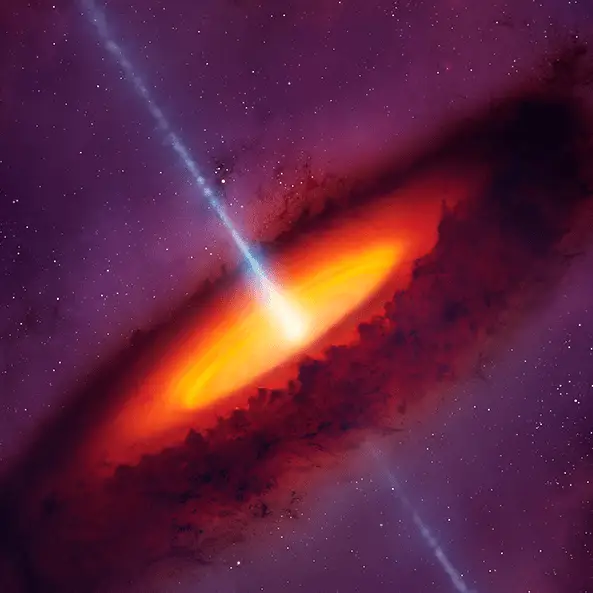


Morbid curiosity is something that consumes us all sometimes, and the prospect of seeing what it'd be like to fall into a black hole is both horrifying and endlessly fascinating.
Vivid simulations have allowed us to see what our dreams would look like, the reality of nuclear war, what happens if you die in space, and even a ride upon the infamous Euthanasia Coaster.
Black holes remain one of the most fascinating space entities though, and while there's so much that even the most knowledgeable researchers and scientists still have to uncover about the phenomenon, experts can still paint a pretty vivid picture.
This comes in the form of a new simulation created by NASA themselves, where they have been able to visualize what would happen if you plunged a camera - or perhaps yourself - into a supermassive black hole.
Advert
The simulation, as explained by its creator Jeremy Schnittman, an astrophysicist at the Goddard Space Flight Center, has two separate scenarios with varied results:
"So I simulated two scenarios, one where a camera - a stand-in for a daring astronaut - just misses the event horizon and slingshots back out, and one where it crosses the boundary, sealing its fate."
While both remain absolutely terrifying, the almost emotionless consumption of the latter only further cements why black holes might just be the most horrifying thing you can find in space.
The black hole itself is around 4.3 million times larger than the mass of our Sun, and took over five days to process, running on 'just 0.3% of Discover's 129,000 processors.
It's explained that around 10 terabytes of data was generated, which is roughly half the estimated text content in the Library of Congress, and the same task done on a laptop would take 'more than a decade'.
Schnittman explains that while a supermassive black hole might seem scarier due to its significantly larger size, it's actually 'less dangerous' compared to it's stellar-mass siblings:
"If you have the choice, you want to fall into a supermassive black hole. Stellar-mass black holes, which contain up to about 30 solar masses, posses much smaller event horizons and stronger tidal forces, which can rip apart approaching objects before they get to the horizon."
While you're going to meet an unfortunate end either way, it'll likely be a far less brutal one if sucked into a supermassive compared to a stellar-mass.
Social media very much agree on the fear-factor of simulations like these, as one comment remarks: "That jet black darkness staring right at me is quite scary."
"Oh I haaate this..." another user explains, "Black holes are such a fascinating part of space, and I find them insanely cool, but man do they unlock a deep fear within me."
Thankfully the closest we'll all likely come to a situation like this is with a VR headset on, but you sometimes can't help but imagine what it would really feel like.